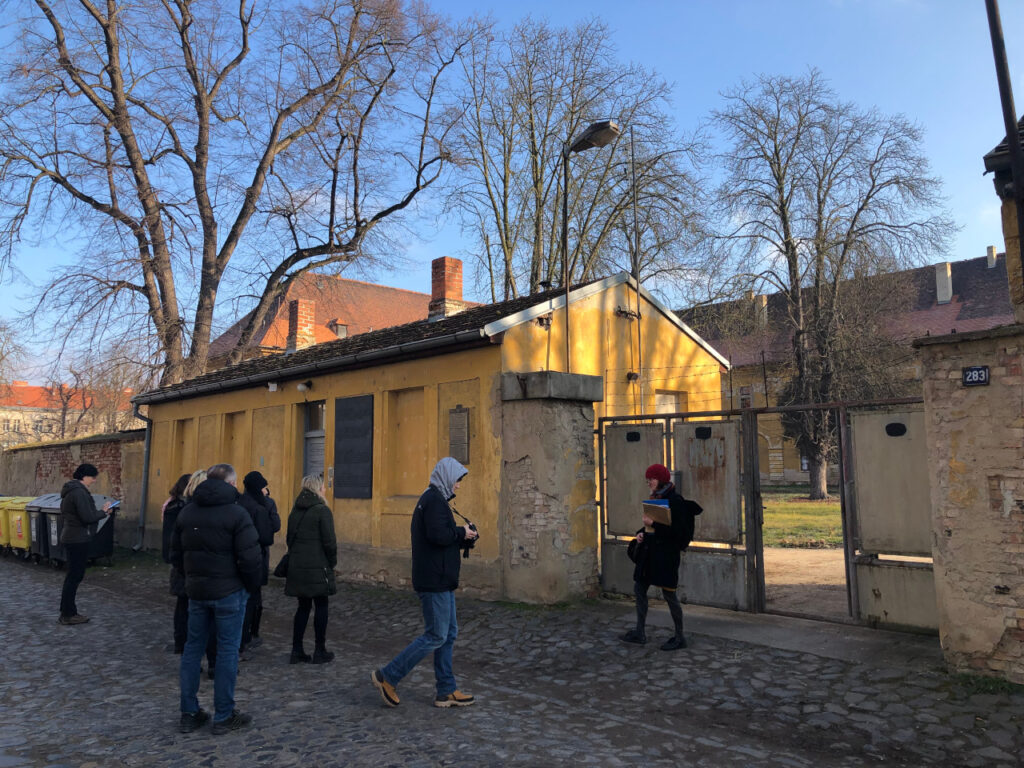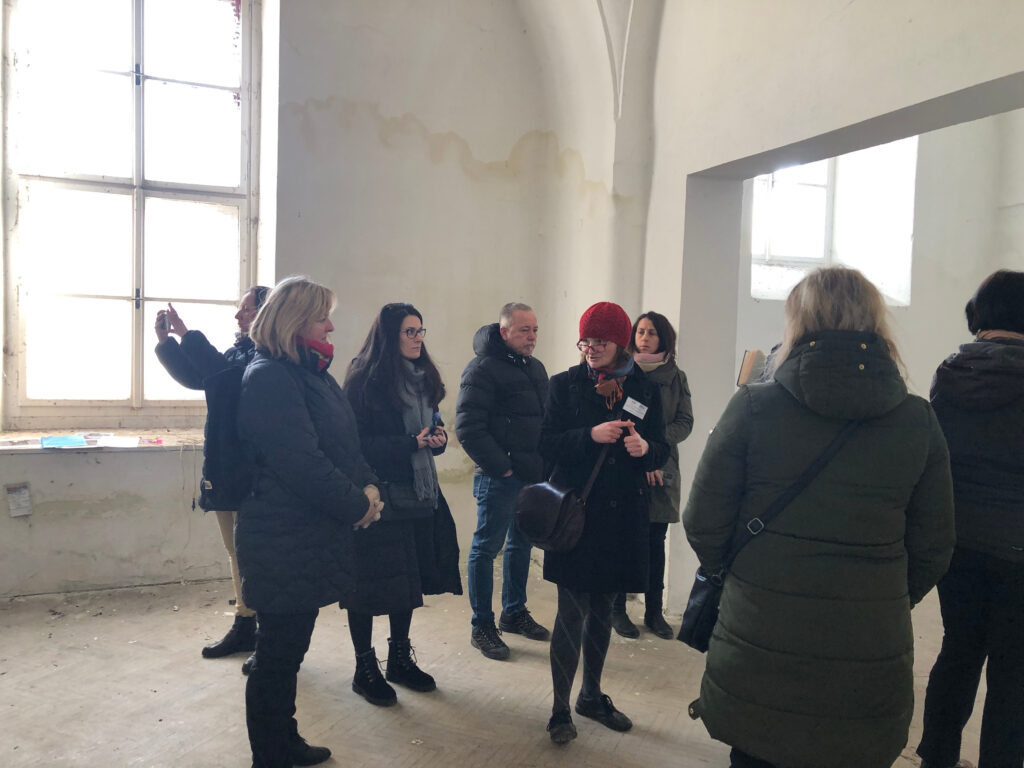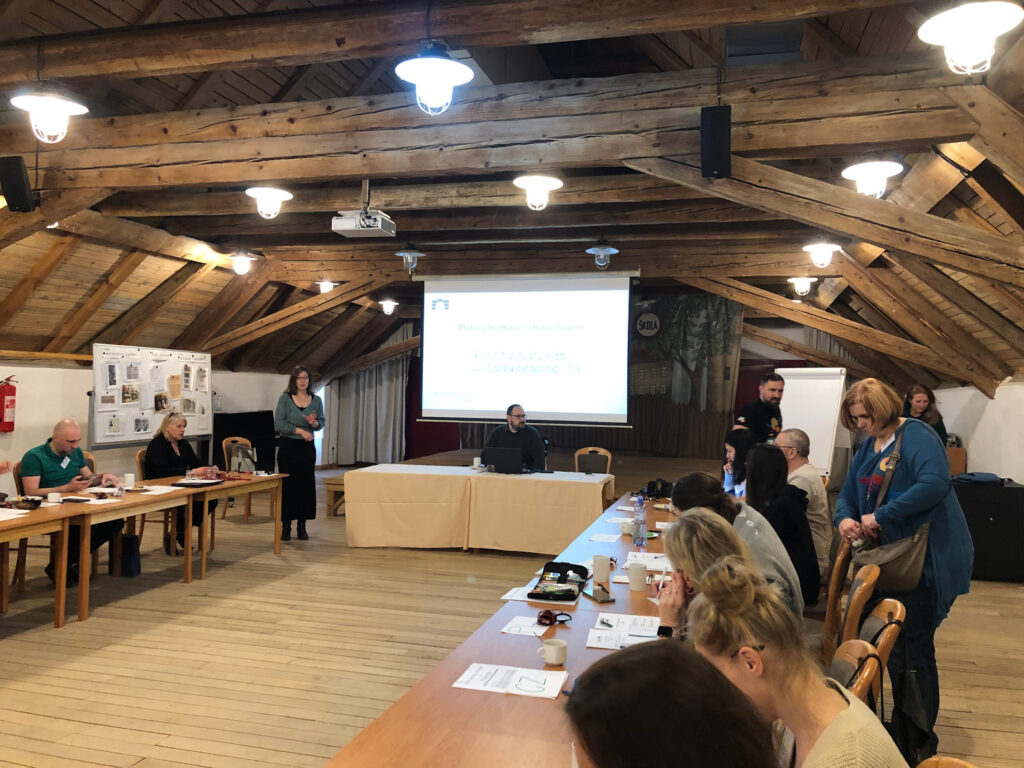This year´s first part of the traditional Czech-Polish Educational Seminar was held in the Terezín Memorial between March 2 and 5, 2023. Its second stage will be hosted by the Memorial and Museum Auschwitz-Birkenau in Poland in December 2023.
This educational event is regularly attended by a dozen of selected Czech schoolteachers who had passed in the previous years all the levels of the educational seminars organized by the Terezín Memorial with the financial support of the Czech Ministry of Education, Youth and Sports. The number of attending Polish schoolteachers is similar. The purpose of this gathering is to stimulate cooperation among Czech and Polish teachers and their schools.

The seminar got off the ground with an introductory evening, with each participant introducing his or her own region and offering the other teachers a typical regional product to taste.

The next two days were packed with guided tours, specialized lectures and workshops. Some of the events were attended by both Czech and Polish teachers, others were staged separately. The principal reason for occasional separation of the two groups was that – unlike the Czech attendees – the Polish schoolteachers, who were visiting Terezín for the first time, were invited to take the main sightseeing routes in the Memorial. As for the Czech schoolteachers, who already know the Terezín Memorial objects very well, they were offered visits to places that are generally closed to the public; these sites are, however, relevant for the history of the former Terezín Ghetto and the Gestapo Prison as well as for the previous history of Terezín. For instance, they visited the interiors of the former Vrchlabí (Hohenelbe) Barracks (originally a military hospital) and recalled the fate of Gavrilo Princip (assassin of the Austrian Archduke Franz Ferdinand in 1914); while visiting the Small Fortress, the Czech schoolteachers climbed to the watchtower above the Fourth Courtyard and then went to see the water reservoir at the Bastion III to get acquainted with the sorry plight of the local sewage system and water supplies that had adversely affected the life of inmates in the Gestapo Prison.
The Czech teachers also tried out the role of students during workshops that are offered to school groups coming to Terezín to attend programs staged by the Memorial´s Department of Education; they also heard a lecture delivered by a Terezín Memorial historian Tomáš Fedorovič, on the subject of law and injustice in the Terezín Ghetto. The program came complete with a visit to the depositary of the Department of Collections where the visitors were told not only about many interesting aspects of the process of acquiring and preserving collection items but also heard captivating stories associated with the individual objects.

An integral part of these seminars is the practice of presenting different projects carried out by the teachers together with their pupils and students in their schools. Only the Czech schoolteachers presented their projects in Terezín, while their Polish counterparts will be introducing their own projects during the second part of the seminar in December.
Lenka Doležalová


